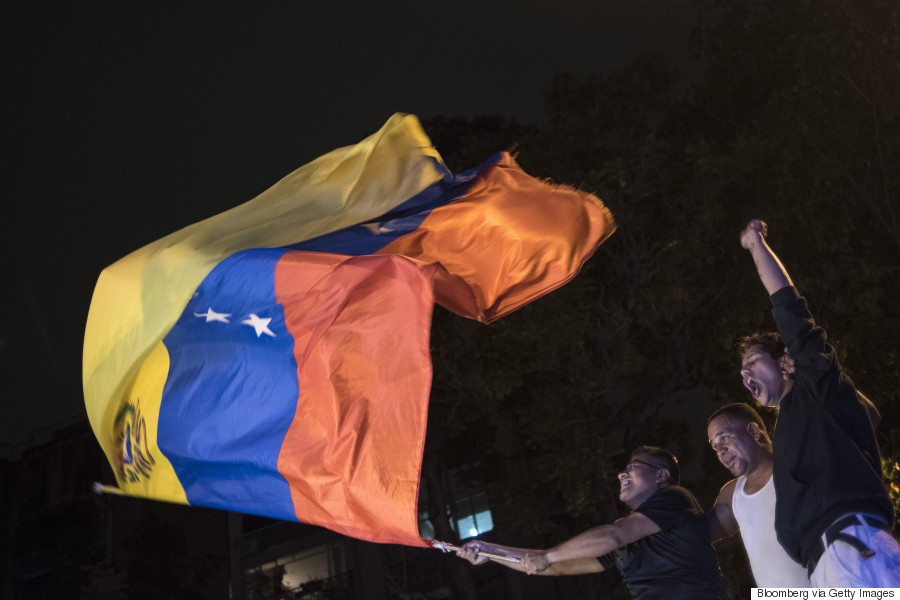
CARACAS, Venezuela -- It's October 2014 in Venezuela: sweltering heat, the sound of sirens, a noisy crowd can be heard afar. Sun rays pierce an opening crisscrossed by metal bars. A bearded man wearing shorts and a basketball jersey, with his back towards a camera, stares at the opening above his head, gets edgy and starts reaching for the bars. In the narrow space he uses his hands and feet, pressing them against the side walls like Spiderman, and climbs towards the light. He finally gets a grip on the bars, his feet on a small ledge and his face toward the sun. A distant rebel yell can be heard through the noise. The bearded man shouts back. He hangs onto the bars with his left hand and clanks them with a stick held in his right. He keeps shouting. The friendly voice in the distance yells back louder. The bearded man is silhouetted against the light, behind bars, but does not stop shouting. He is jailed but fearless. He is imprisoned but free as he can be.
His name is Leopoldo López and he is jailed in a military prison called Ramo Verde. He screams for his country Venezuela. He has become the symbol of Latin American liberty and a global icon, the democratic fighter who will not give up in his quest to regain democracy. The distant voice belongs to his friend Daniel Ceballos, the former mayor of San Cristóbal, a wingman who was also jailed in a struggle they hope will change their country and spread throughout the continent.
Ceballos sees the distant turmoil which can be heard in the video, and he yells with sarcasm and courage: "... The mutiny is not in Ramo Verde, the mutiny is in the endless queues [in markets], the mutiny is in food shortages and the mutiny is because there is no electricity." López replies "... for a Venezuela where all rights can be for all people ... where power is not abused." Both of them shout: "We are on the right side of history."
Fourteen months later, Dec. 6: the Venezuelan people voted overwhelmingly for change and a new course. The homeland of the greatest South American in history, Simón Bolívar, is on the right side of history once again, blazing a path for the region one more time. Economic and political change are sorely needed and are coming.
How did all this come to pass? Why are there political prisoners in Venezuela? What happened on election day? Let's take a look.
Venezuela is a country endowed with unmatched natural resources and incredible people. It benefitted more than most from China's epic growth over the past few years. Here, the massive inflow of petrodollars was grossly mismanaged, which became evident when the combination of declining production levels and the oil price downfall brought the economy crashing down. Over the last 15 years the non-oil economy was destroyed by rampant statism and expropriations. Just about everything must be imported, and hard currency to pay for it has become scarce. The current government led by Nicolás Maduro found itself in a bind and worked feverishly to make matters worse.
The Maduro regime's responses to the oil crash defy belief: a wacky, multi-tiered exchange rate system and massive local currency printing. The predictable economic disaster can be summed up with three factoids: you can get more than 2,000 gallons of gasoline for just a single dollar at the pump, a dollar bill can be purchased for less than a penny at the central bank (if you have the right political connections) and the largest local currency bill is 100 Bolívares fuertes (an oxymoron that means "strong Bolivars"), which are worth around a dime. It is surreal to fill up an SUV in Caracas, pay with a penny and get change. It is criminal to give access to hard currency to friends of the regime for less than a cent on the dollar. It is not viable to trade and transact business when the largest paper bill is worth a bit more than a dime.
That is why the Venezuelan people are fed up politically, but never physically. They stand in endless queues waiting to buy food, sugar, medicine, cooking oil, diapers and many basic necessities. They can only do so on a given weekday, based on the last digit of their I.D. cards. People live in a country with one of the highest murder rates in the world, massive scarcity of goods and the top inflation rate in the hemisphere. In the street they face fierce competition between criminals who want to take their money and maim them and a government that makes their cash disappear with inflation that triples or quadruples prices in a year.
This economic meltdown borders on a humanitarian catastrophe. The cruel and despotic regime criminalized protests and criticism. Dozens of opposition figures have been jailed, along with young people whose only crime was using Twitter. Journalists are being persecuted for reproducing stories about the narcotraffic investigations that hover over one of the most powerful men in the country -- the ruthless military strongman Diosdado Cabello.
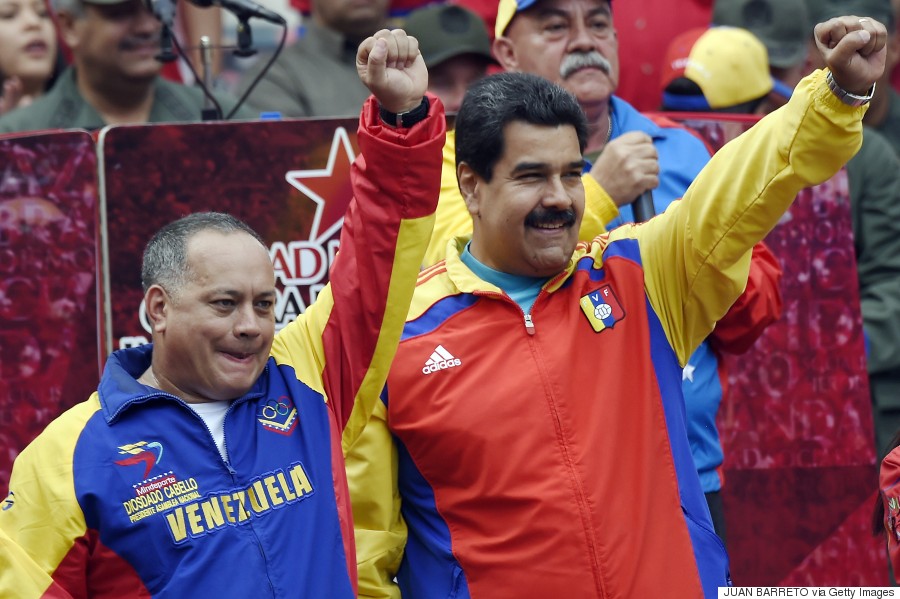
That is why the country's political opposition was savagely repressed. López and Ceballos were locked up in a military garrison, though Ceballos was later granted house arrest, where he remains. The mayor of Caracas, the remarkable Antonio Ledezma, was yanked from his office and remains locked up in his home. Many other opposition leaders like Vicencio Scarano and Manuel Rosales met the same fate. The Maduro-Cabello regime figured that no matter how bad the economy got, it could hang on to power by criminalizing dissent and muzzling the last remnants of a free press.
The regime in Venezuela spouts "ideology" all day long, but it is now clear it only wants to stay in power, loot the country, suppress internal opposition, maintain its external support and preserve immunity for its top leaders. There was but one small detail -- a congressional election before the end of 2015. The regime needed to cancel it, rig it or steal it.
Canceling it became impossible when López and Ceballos, locked up in Ramo Verde, went on a hunger strike in May. They demanded a date for the election and international observation. Hundreds of people joined their strike. They got what they wanted and more. A date was set -- Dec. 6. The regime never authorized a full, qualified election observation mission from the Organization of American States or EU. But the election was intensely followed, with hundreds of former presidents, parliamentarians and journalists descending like it was the political World Cup, which it probably was.
Since canceling the vote was out of the question, rigging started. Massive use and abuse of government funds, employees and resources -- check. Nonstop media coverage for government candidates while opponents disappeared off radio and TV -- check. Keeping the iconic Leopoldo López jailed and invisible -- check. Keeping elected mayors Ceballos, Scarano and Ledezma under house arrest and off the campaign trail -- check. Barring prominent opponents like María Corina Machado from running for Congress - check. Deporting Colombians to stir up nationalism (a la Trump) -- check. Decreeing emergency status in all border areas to prevent campaigning in unfriendly areas -- check. Cloning the opposition symbol and colors in the ballot to confuse voters -- check. Unleashing violence against opposition leaders in the midst of campaign rallies -- check. Turning the wrath of the government against a small neighbor like Guyana -- check. Killing an opposition member standing a few feet away from Leopoldo's wife Lilian Tintori at an opposition gathering -- check. Check, check, check.
Name a trick and the regime used it. Nothing was left on the shelf and every rotten maneuver was deployed.
It did not work.
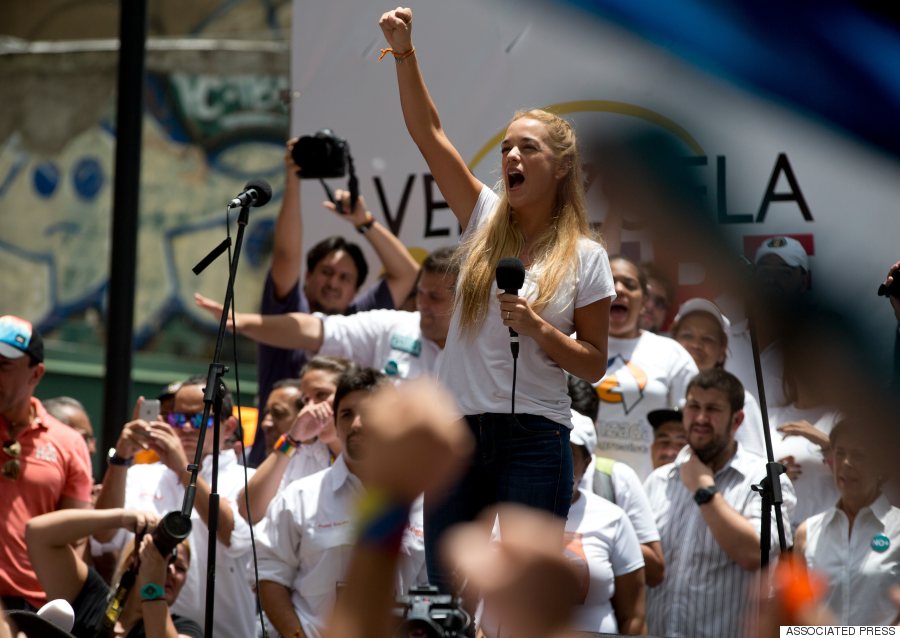
There was no food for the hungry, no medicine for the sick and no security in the streets. Inflation devoured wallets and pockets; criminals ran rampant. Venezuelans were mad and the old tricks were no longer effective.
Internationally the regime felt safe and shielded. The explosive combination of Chávez charisma and bountiful oil cash had made Venezuela the dominant player in Latin America this century. The silence of countries in the region was deafening as Venezuela's leaders destroyed the country politically and economically. There were problems -- Maduro had no charm and no money. Cabello, the head of the national assembly and de facto chief of the armed forces, was going ballistic -- the cocaine business he is accused of protecting was running amok.
Nonetheless the regime felt it had matters under control. Venezuela is indispensable in two initiatives that enjoy the full support of the Obama administration and the Vatican: the U.S.-Cuba reconciliation needs a continuous flow of Venezuelan oil, and the Colombian peace negotiations taking place in Havana need Venezuela's support, as it has become the new home base for FARC guerrillas.
The regime's international shield broke in the least expected of places. Just when it seemed that Maduro and Cabello could rig or steal the election with no one complaining, South America woke up. The new secretary general of the OAS, the Uruguayan Luis Almagro, demonstrated that the complicit days of his predecessor covering up for left-wing authoritarians were over. Almagro asked to observe the Venezuelan election with a qualified OAS mission, then he insisted and finally demanded it. Predictably, he was turned down and insulted by Venezuelan authorities. Almagro did not flinch. Brilliantly aware of what was at stake in the land of Bolívar, he fired off an 18-page letter that demolished the regime and exposed its blatantly fraudulent practices. It was a devastating indictment of Maduro and his grossly autocratic elections. Soon after came the newly elected president of Argentina, Maurico Macri, who pledged to expel Venezuela from Mercosur for its undemocratic behavior.
The flood gates were open. The president of Paraguay had his picture taken with the unyielding Tintori. The president of Costa Rica raised his voice against the Maduro regime. The Brazilian government issued a belated and meek statement doing the same. European heads of state piled on. Lo and behold, the tireless advocacy of the families of the Venezuelan political prisoners, and Almagro's courageous OAS letter, shattered the 15-year-old petro-shield. The emperor had no clothes and everyone could finally see. Any respectable leader in the Americas or in Europe would no longer vouch for Maduro, Cabello or their cronies. Instead, they are all now vying to have their pictures taken with López's parents or wife.
A dramatic turn of events indeed, as we now see that standing up for democracy in Venezuela has become a domestic political issue in every country in Latin America and Spain. Soon there might even be pictures of Hillary Clinton, Marco Rubio, Ted Cruz, Jeb Bush and many more U.S. political figures with relatives of López.
The Maduro regime had tried to postpone the election and failed, tried to rig it and were called out by the OAS. Their usual abusive tricks were not able to turn the tide of popular will this time.
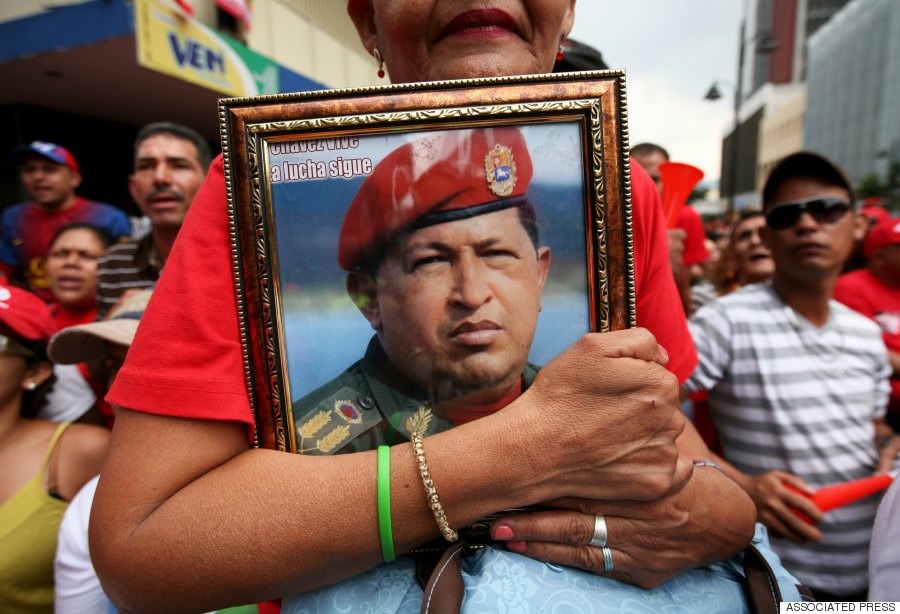
Then came election day on Dec. 6. The last recourse was to steal the election. The means to do it are well known and have been used before. The balloting takes place with machines and is electronic, so the regime knows instantly how the vote tally is going and does not have to wait for exit polls. At 6pm on voting day it would know the results and, if it was behind, the exact size of the gap that needed to be closed. That's when the biased puppets who run the election spring into action, claiming that people are lined up in queues waiting to vote, and extend for hours the balloting deadline for all precincts, with or without lines of people outside of them. The sun sets, darkness arrives and the fearsome "colectivos" (gangs on motorcycles with ski masks, armed with sticks and guns) descend into the streets and voting precincts, terrorizing citizens and scaring away opposition delegates who are supposed to defend against voting fraud. These gangs take over the voting booths and proceed to punch in the votes for people that did not do so (deceased, sick, migrants, apathetical or others), distorting and overturning the will of the people. Of course, this fraudulent operation requires the acquiescence of the security forces that, under government orders, recede from the scene and let the "colectivos" run amok.
This last recourse didn't work either. The opposition was incredibly well organized. The eyes of the world were fixed on Venezuela. The armed forces declared independence in an amazing turn of events that preserved democracy and changed history.
Hours before the voting precincts were due to be closed, the desperate Cabello announced that they would remain open until "whatever time it takes" -- presumably he meant until he could overturn the results, steal the election, keep his job, preserve his immunity and hang onto power.
And then Jesús "Chúo" Torrealba, the popular, cool, bald and brilliant coordinator of the opposition, made his move. He called a press conference around 4pm, invited several of the visiting former presidents to stand with him and party leaders of the Democratic Unity Roundtable (MUD), a coalition of opposition parties. Torrealba wanted to denounce the government's nefarious actions with the maximum possible exposure and coverage, so he could break over the intimidating media barrier that the regime enjoys.
Torrealba's gambit worked. The press conference was carried live by a few outlets pretending they had a late-blooming "impartiality." The bait that Torrealba had placed in the water first hooked a small fish, Tibisay Lucena, the pliant head of the "independent" electoral commission: jittery and nervous, she came out on TV to revoke the observer credentials of the visiting former presidents who stood with the opposition. Then a big shark got caught on the line: Cabello himself. He went ballistic and demanded that foreigners be expelled from Venezuela. Predictably, the next couple of hours of public discussion all whirled around what the Torrealba and the Roundtable group had demanded: abide by the law, close the precincts, count the votes and respect the will of the people; stealing the election in the dark with thugs would not be accepted. Twitter hashtags echoing this demand exploded and Cabello's desperate maneuver was laid bare for all to see.
That's when a new godfather for Venezuelan democracy came to the fore.
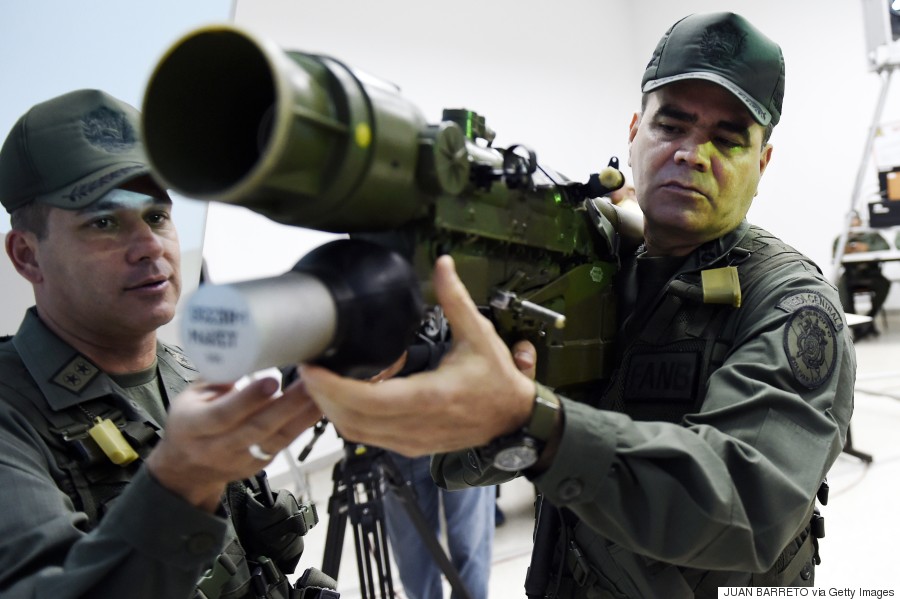
Torrealba's masterful move met a response from unexpected quarters in the form of the most anti-institutional, yet extremely pro-democratic public statement in recent memory in Latin America. It was past 7pm, and clear that the civilian authorities were following Cabello's dictates by keeping all voting precincts open. A general came on the scene: the Minister of Defense Vladimir Padrino López (Padrino means godfather in Spanish). Surrounded by the military high command he calmly thanked the people of Venezuela for participating massively in the election, then described the election in past tense, all but announcing that voting was over. Padrino went on to assure people that security would be guaranteed in the streets, sending a clear message that criminal behavior would not be tolerated. Since the armed forces are in charge of the logistics of the election, this announcement was more than merely symbolic. The soldiers followed Padrino's orders and precincts were closed, votes tallied, tranquility in the streets was guaranteed and it became crystal clear that the results would be respected and the regime could not steal the election.
The MUD's extraordinary election monitoring system, designed and controlled by Roberto Picón, a whiz systems engineer and one of the true unsung heroes of this election, went back from flashing red to green in the thousands of precincts monitored by delegates all over Venezuela. If voting ended legally and peacefully, and it did thanks to Padrino, Picón would know almost right away exactly how many seats and by how many votes the MUD had won, down to the last lowly seat.
After a few hours and a long delay, Picón's numbers became overwhelmingly clear to all, and even the election council had to admit defeat and announce the results: a landslide win by the opposition MUD with two-thirds of the seats (112 out of 167) in the new assembly that will be inaugurated in January. In the span of a few hours the 17-year stranglehold of an opprobrious regime on Venezuelan voters was broken, democracy could breathe again, tears were shed, flags waved and in the land of Bolívar the tide of history turned. Things will not be transformed overnight, but they will never be the same again in Venezuela or Latin America: change has come and it is here to stay.
The challenges ahead are gigantic. Venezuela needs reconciliation and reconstruction. Cabello, unfortunately, insists on persecution and destruction. After the election he poked justice and human rights in the eye by appointing as the new public defender a lawyer, "Judge" Barreiro, the woman who sentenced -- or rather lynched -- Leopoldo López to 14 years in Ramo Verde. He is trying to stack the supreme court with his cronies on the way out. More international indictments against drug trafficking criminals linked to the regime are expected to be on the way, and nerves are fraying. Maduro seems dazed. On the night of the election he accepted the results; he should keep his word.
Cabello is a desperate man; in the course of a few hours he lost much of his power. First, his perch as head of the assembly where he controlled the judiciary, the prosecuting attorneys, the electoral authorities, "independent" institutions, the central bank and its dollar pillaging and a good chunk of the government. Second, he lost his sway over the armed forces, which did not obey his dictates on election day and sided with Padrino -- and democracy. Third, he will no longer have the institutional immunity to protect himself from international investigations. Cabello will probably demand an alternate post for protection (vice president, replacing Chávez's son in law? Minister of defense?). Maduro would be wise to sideline Cabello, release political prisoners before Christmas, call for reconciliation and work with the MUD to rebuild a nation destroyed by misguided policies and plundered by massive corruption. The wise and advisable path is not usually the one that an authoritarian regime chooses when facing its own demise. Stay tuned, the hard part in Venezuela has only just begun.
The international community better step up to the plate now. The U.S. government and the Vatican cannot look the other way while the regime in Venezuela tramples over democracy, regardless of its role in the Colombian peace negotiation and the U.S.-Cuba reengagement. Peace in Colombia and the U.S.-Cuba reengagement will only work with a democratic Venezuela, anything else will fail and implode. Venezuelan democracy is the third leg of an important regional triangle that must be defended, not relegated and made secondary.
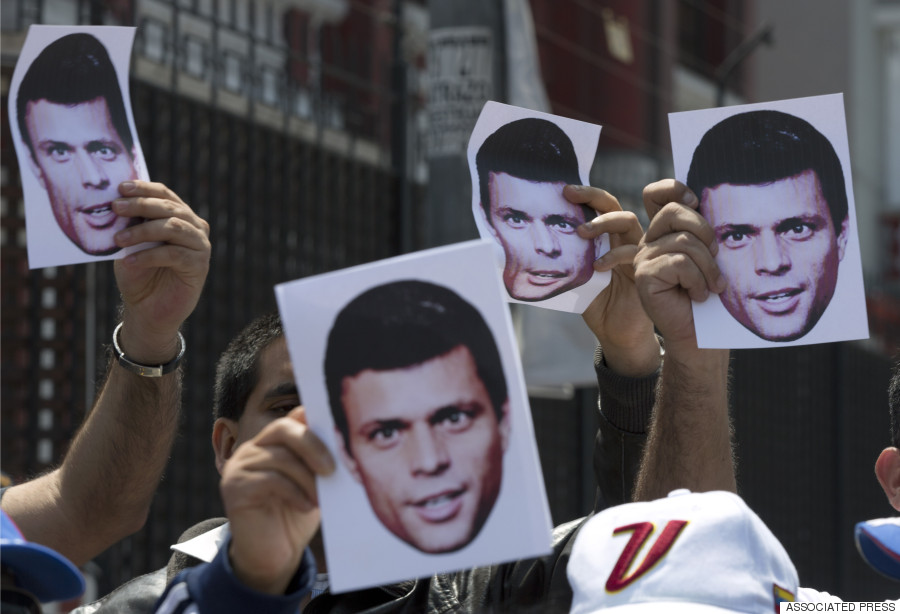
Let us close by returning to the election. In the midst of voting turmoil and a dramatic conclusion, what was happening with one of the most famous political prisoners in the world? Accompanied by the remarkable legal eagle Juan Carlos Gutierrez, Leopoldo's trustworthy lawyer and brother, I went to find out, along with a couple of the other visiting former presidents. We tried to test if Maduro's openness, expressed in a meeting that took place right before the election, would still hold true two days after the voting. At the inner gate of Ramo Verde, aware that Maduro had supposedly approved the visit, our delegation waited patiently, engaging in friendly banter with military officers (they claimed Leopoldo is a poor basketball player; if this is true, well, no one is perfect). Alas, as the hours went by it became clear that Cabello still commands this garrison: clearance was not granted and our visit was not possible.
As our team was waiting at the gate we saw a pickup truck that belonged to the armed forces go in, and then out. It was retrieving the voting machines and equipment that were used on election day in Ramo Verde. Somewhere in that truck were the box, the ballot and the ink used in a symbolic vote: the material used by Leopoldo López to exercise his right to participate in a democratic process he sacrificed so much to make a reality. That material deserves safekeeping, for one day it will surely be on display in a museum.
With eyes closed one can appeal to John Lennon and imagine. Imagine being Leopoldo Lopez late in the afternoon of that Dec. 6. Imagine being incommunicado in a massive four-story building. Imagine the fearsome sounds of clanking locks as soldiers approach the cell. Imagine that your worst fears do not materialize, it is not another unexpected inspection to seize "subversive" material, like pen and paper and written diaries.
Imagine, instead, the surprise of seeing the voting equipment set up for a manual tally. Imagine the thrill of voting despite a 14-year jail sentence under appeal. Imagine dousing your pinky finger on ink, lifting it up, watching it dry and feeling like the millions of Venezuelans who voted for change. Imagine going back to your cell and staring at ink on your finger as if it was a democratic wedding band.
Imagine laying in the cell, oblivious to all of Cabello's shenanigans, unaware of the critical role of the armed forces that guard that very cell and the stellar work of the MUD leadership somewhere outside.
Imagine waiting and waiting in the pitch-black darkness as the night passes by with no TV, no radio, no cellphone, no Internet and no information. Imagine dozing off, half asleep and half awake, finally learning of the election results by an explosion of distant fireworks and people hooting, hollering and shouting with elation.
Imagine looking up at the window bars and remembering that muggy day back in October, clinging to those bars, clanking them and screaming "we are on the right side of history."
Imagine climbing up to those bars once again, looking out at the commotion and hearing voices, a noisy, joyful sound of people celebrating in the surrounding neighborhood coming in. The voices get louder and the noisy crescendo keeps rising, they chime through the bars and become distinctly clear. They start with "Si, se puede" ("Yes, we can"). And then an uplifting chant: "Leopoldo, amigo, el pueblo está contigo!" ("Leopoldo, my friend, the people are with you!")
Imagine no more. On Dec. 6, against all odds, it happened.
On that beautiful night, the man of Ramo Verde, alone in his cell, did not yet know the precise vote tally of that day's historic election. He did not yet know the dimension of the massive landslide, or the exact number of seats that the opposition had won for its new congressional supermajority.
The man in Ramo Verde is on the right side of history. On that incredible night the chants told him with exact precision all he needed to know, the only thing that truly matters: his beloved Venezuela is now on the right side of history with him.
Earlier on the WorldPost:
